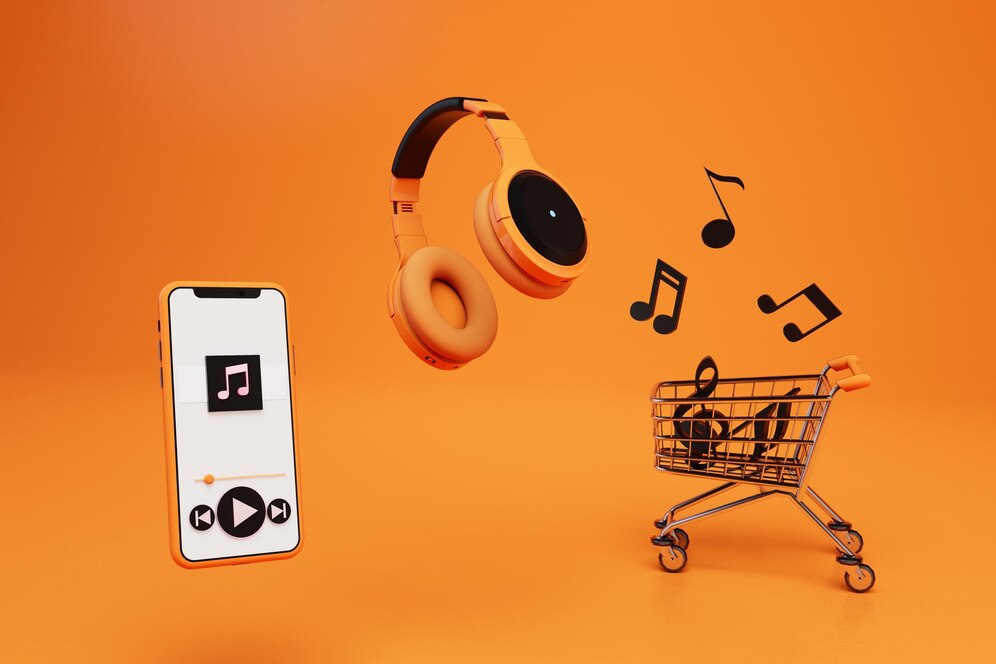As an independent artist, selling your music and merchandise online is one of the best ways to generate income and build your fanbase. Whether you’re just starting out or have been in the game for a while, you don’t need a record label to successfully sell your music and merch. In this post, we’ll explore the best ways to sell your music and merchandise online, giving you the tools you need to thrive as an independent artist.

1. Create an Online Store on Your Own Website
The most professional way to sell your music and merch is through your own website. It allows you to have full control over your sales and branding without relying on third-party platforms.
- Set up an E-commerce Platform: Platforms like Shopify, WooCommerce (for WordPress), and Big Cartel are great options for creating an online store. They let you sell digital downloads, CDs, vinyl records, and physical merchandise like T-shirts, hats, and posters.
- Offer Digital Downloads: Make your music available for purchase in MP3, WAV, or other formats. Offering direct downloads helps you keep a higher profit margin compared to streaming platforms, where payouts are often low.
- Promote Your Store: Share the link to your online store on all your social media channels, in your email signature, and during live performances. The more visibility, the better the sales!
Tip: Use your website to tell your story, showcase your music, and offer exclusive items for your fans. Personalizing your website makes it feel more like an experience than just a shop.
2. Use Digital Distribution Platforms
Digital distribution platforms can help you get your music on popular streaming services, while also providing an option for selling directly to your fans.
- DistroKid, TuneCore, and CD Baby: These platforms allow you to distribute your music to streaming services like Spotify, Apple Music, Amazon, and more. Many also give you the option to sell music directly to fans, with higher profit margins than streaming.
- Bandcamp: Bandcamp is one of the best platforms for independent artists. It allows you to sell your music, albums, and merch directly to your fans, giving you more control over your pricing and distribution. Plus, Bandcamp takes a smaller commission than most streaming services.
- SoundCloud Pro: If you have a strong following on SoundCloud, their Pro version allows you to sell your music directly to fans and offer exclusive content.
Tip: Make sure to optimize your profiles on these platforms, include engaging images and descriptions, and offer bundles like exclusive albums and merch to entice fans.
3. Utilize Social Media Platforms to Sell Music and Merch
Social media is a powerful tool to directly engage with your audience and sell music and merchandise. Here’s how you can use them effectively:
- Instagram Shop: Instagram’s Shopping feature lets you tag products in your posts and stories, making it easy for fans to buy your music and merch directly from the platform.
- Facebook Marketplace: Facebook offers a marketplace where you can sell music and merch. You can create posts or ads that drive traffic to your store, or list items for direct sales.
- TikTok: TikTok is one of the fastest-growing social media platforms for musicians. Use TikTok videos to showcase your music, promote your merchandise, and create fun and engaging content that encourages your followers to check out your store.
Tip: Include links to your online store in your bio and within posts. Regularly post content that showcases your merch, music, and behind-the-scenes moments to keep your fans engaged.
4. Sell on Marketplaces for Music and Merch
Several established online marketplaces are excellent for selling both music and merch. These platforms give you access to a large and engaged audience and are easy to use.
- Etsy: If you create physical merchandise like custom T-shirts, posters, or vinyl records, Etsy is a great marketplace to sell your products. Many independent artists thrive on Etsy by offering unique, handmade, or limited-edition items.
- Redbubble, Teespring, and Merch by Amazon: These platforms let you upload your designs to be printed on demand and sold as clothing, accessories, and home décor. You don’t need to worry about inventory or shipping—these services handle everything for you.
- Amazon Music and Amazon Merch: Amazon offers both digital music distribution through Amazon Music and a print-on-demand merch service. You can sell your music and merch in one place, giving you access to one of the world’s largest online marketplaces.
Tip: Keep your listings professional with high-quality photos, clear descriptions, and relevant tags to make your products easy to find.
5. Offer Exclusive and Limited-Edition Products
One of the best ways to build a loyal fanbase and increase sales is by offering exclusive and limited-edition products. Fans love the idea of owning something special that isn’t available everywhere.
- Limited-Edition Merch: Offer limited-run T-shirts, signed posters, and exclusive vinyl editions to make your merch feel more exclusive. This creates a sense of urgency for fans to buy before it’s sold out.
- Exclusive Digital Content: Offer downloadable content such as special acoustic versions, demos, or unreleased tracks for fans who purchase directly from your website or Bandcamp.
- Fan Club or Subscription Model: Create a subscription-based service where fans get access to exclusive content, merchandise, and early releases in exchange for a monthly fee. Platforms like Patreon or Ko-fi are great for this.
Tip: Regularly update your offerings with fresh, limited-edition items or experiences to keep your audience excited and engaged.

6. Use Email Marketing to Boost Sales
Building an email list is one of the most effective ways to drive consistent sales for your music and merch. By offering exclusive deals, sneak peeks, and special discounts, you can create a dedicated group of fans who are more likely to purchase from you.
- Build Your Email List: Offer something of value (a free track, early access to tickets, or a discount) in exchange for your fans’ email addresses.
- Create a Newsletter: Regularly update your subscribers with news, upcoming releases, and special offers. Make sure to highlight new music, merch drops, and any upcoming live shows.
- Promotions and Sales: Use email marketing to run limited-time promotions or discounts, especially during key times like holidays or special album anniversaries.
Tip: Make sure your emails are personalized and engaging. Fans are more likely to make a purchase if they feel like they’re part of your journey.
7. Collaborate with Other Artists and Influencers
Partnering with other artists or influencers can increase your exposure and help you sell more music and merch.
- Collaborations: Team up with other musicians on joint tracks or albums. This opens up both artists’ fanbases to each other’s music, and you can promote each other’s merch.
- Influencer Marketing: Find influencers who align with your music and style. Send them free merch or early access to your music in exchange for shoutouts or product promotions on their social media.
Tip: Choose collaborators and influencers who genuinely resonate with your music and brand to ensure authentic promotion.
Selling your music and merch online as an independent artist has never been easier. With the right tools and strategies, you can create an online store, leverage digital distribution platforms, and utilize social media to connect with your audience and grow your brand. Keep your offerings fresh, exclusive, and authentic, and use email marketing and collaborations to drive sales. With a little effort and consistency, you can successfully sell your music and merch and build a sustainable career without the need for a record label.